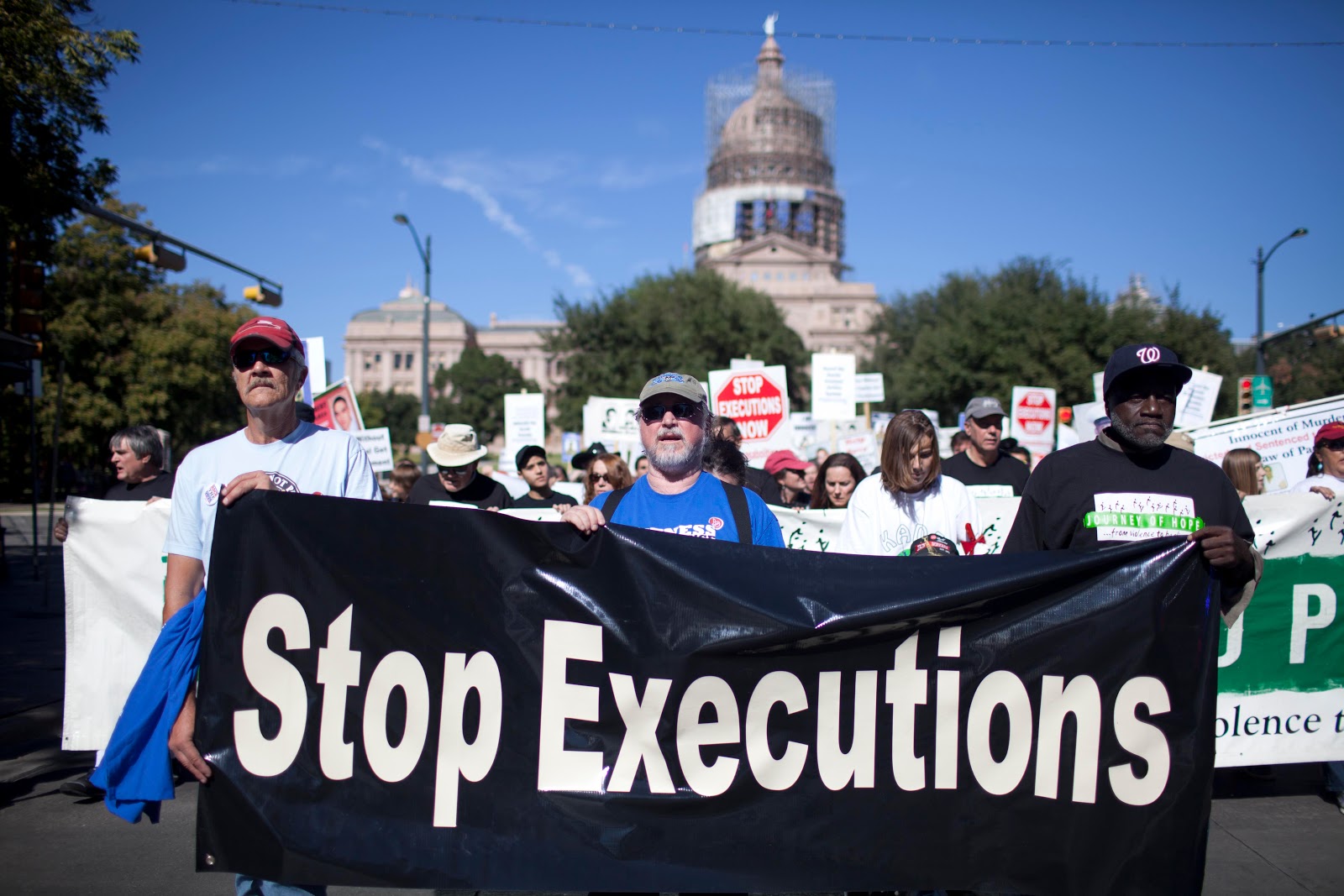Urge the Governor to Stop the Execution of DaRoyce Mosley set for today.
Inmate to die for Kilgore robbery where 4 slain
© 2007 The Associated Press
HUNTSVILLE, Texas — A former high school honors student convicted of killing a woman in a holdup at an East Texas bar where she was one of four people gunned down was headed to the death chamber Tuesday evening.
DaRoyce Mosley, 32, would be the 22nd Texas inmate executed this year and the first of three to die on consecutive evenings in the nation’s most active death penalty state.
Mosley didn’t deny walking into the Kilgore bar intending to rob the place, but insisted his uncle who accompanied him was responsible for the slayings 13 years ago. The uncle, Ray Don Mosley, now 44, took a plea bargain and is serving life in prison.
DaRoyce Mosley said he wrongly confessed to the slayings of Patricia Colter, 54; her husband, Duane, 44; Alvin Waller, 54; and Luva Congleton, 68. Sandra Cash, then 32, who worked at Katie’s Lounge in Kilgore, was shot in the spine but was able to call police.
A Gregg County jury condemned Mosley for Patricia Colter’s death. He was denied clemency by the Texas Board of Pardons and Paroles and late appeals to the courts argued that threats from Mosley’s uncle coerced him into the shooting spree.
Cash, the lone survivor, last weekend told a lawyer working for Mosley that the uncle ordered Mosley to fire the shots. But Cash, according to attorney John Weigel, refused to elaborate on what Mosley did after the threat and cut off her conversation by saying only that Mosley “deserved to die for ruining her life and for being involved in the killings of those people.”
Cash’s comment “would have either supported a theory of the case that DaRoyce ran or that he acted under duress,” said Gary Bledsoe, one of Mosley’s trial lawyers. “It clearly is quite significant in terms of whether there is mitigation and whether DaRoyce is likely to commit future acts of dangerousness.”
The jury that condemned him had to agree they believed Mosley was a future threat.
Clement Dunn, one of the prosecutors at Mosley’s trial, said he was confident the jury’s verdict was correct, certain that detectives investigated the case appropriately and agreed with all the appeals that upheld the verdict.
“And I feel good about being able to say that,” he said.
Mosley had no previous prison record. He grew up in an impoverished area of Kilgore but succeeded in high school. He won a spot on the student council, played sports, made the honor roll and then attended Kilgore College. But he said peer pressure from others in his neighborhood prompted him to slide, and eventually to accompany his uncle on the robbery.
“It’s not so much that I wanted to,” he told The Associated Press in a recent interview from death row, saying he fled when the shooting started. “I turned around and ran out, and here I am. It’s a messed-up situation all around.
“These people are fixing to execute me. It’s hard not to be bitter. … I know I shouldn’t be here. It’d be easier if I did it. If I killed four people, I’d deserve it and I’d prepare for it. But that’s not the case with me. How do you prepare yourself to die if you’re not ready to die?”
Evidence showed Mosley and his uncle split $308 taken from the bar among themselves, a 16-year-old friend of DaRoyce Mosley’s who accompanied them that night, and a friend who was related to the juvenile. The juvenile who authorities determined left before the gunfire was given a two-year jail sentence.
Mosley said he turned down a plea deal for three life terms.
“I figured I’d be found not guilty,” he said. “If anything, it’d be armed robbery. It didn’t work out.”
On Wednesday, John Joe Amador, 32, was set to die for the 1994 shooting death of a San Antonio taxi driver.
Then on Thursday, Kenneth Foster, 30, faced lethal injection for his role as the getaway driver when a San Antonio man, Michael LaHood, was gunned down on his driveway in 1996. Foster’s case has attracted attention from death penalty opponents because another man, Mauriceo Brown, fired the fatal shot and Foster was convicted under Texas’ law of parties, which makes an accomplice equally culpable. Brown was executed last year.
___
On the Net:
Texas Department of Criminal Justice execution schedule http://www.tdcj.state.tx.us/stat/scheduledexecutions.htm
DaRoyce Mosley http://www.daroycemosley.com/














